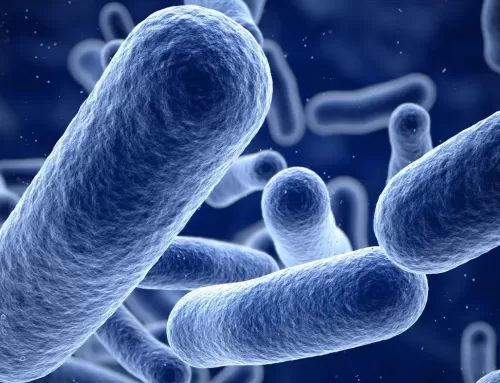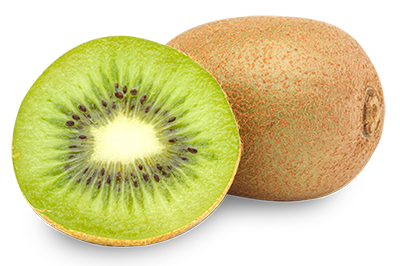How Kiwifruit enzyme Actinidin aids in protein digestion
Enzymes are proteins that are biological catalysts – they catalyze the biochemical reactions that occur in living organisms, such as the digestion of food or the synthesis of DNA. An enzyme's function is determined by its shape and the sequence of amino acids it is made of, and an enzyme will react only with specific substances.
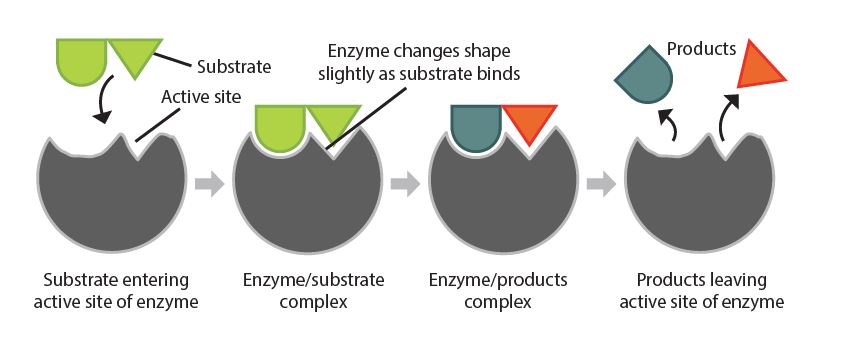
To catalyse a reaction, an enzyme will bind to one or more molecules, its substrates, through its binding site, situated around its active site. The active site is a special pocket on the enzyme's surface that contains the parts that catalyze the reaction, and the binding site is selective for that particular enzyme's substrate(s). As a result of this binding and catalysis, the substrate(s) may be broken down into multiple products, joined together to create a larger molecule, or have parts swapped around. They are then released by the enzyme to perform their biological function.
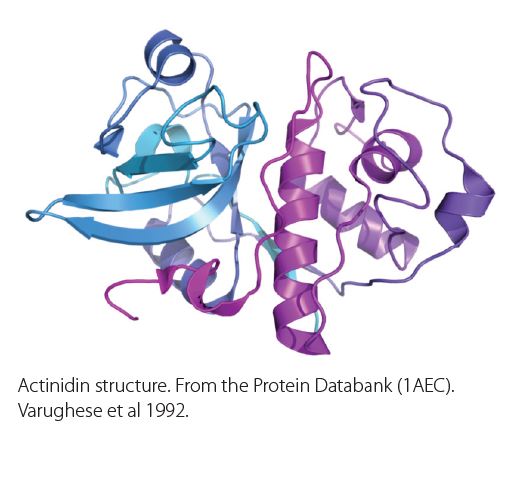
The activity of an enzyme will be affected by several factors, including temperature, concentration, pH, the presence of salts and the presence of inhibitors (something that will stop the enzyme from working) or activators (something that will promote the activity of the enzyme).
The most commonly known enzymes are our digestive enzymes: lipases, amylase, and proteases. These enzymes digest lipids/fats, starch and protein respectively. Other enzymes take part in a wide range of processes to ensure the normal running of our bodies and are vital for life.
Proteases are enzymes which catalyse the breakdown of proteins (a process known as proteolysis) into smaller peptides or single amino acids. They do this by cleaving the peptide bonds within the protein. In the body, the breakdown of dietary protein is essential as it allows for the absorption of amino acids which can then be utilised as building blocks by cells in the body to create new proteins, such as enzymes, antibodies, structural proteins (e.g. keratin, collagen and elastin), and messenger proteins (e.g. hormones), or they can be broken down to produce energy.
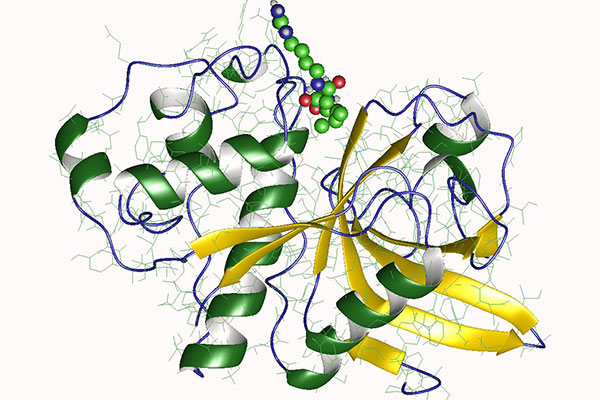
The digestion of dietary proteins in humans begins in the stomach where the initial breakdown is done via the action of pepsin (a protease) and hydrochloric acid. The resulting peptides and protein fragments make their way to the small intestine where further enzymes (e.g. trypsin) continue to digest the peptides and fragments into amino acids and small peptides, which can then be absorbed into the bloodstream. Some dietary proteins are more readily digested than others and the presence of a significant amount of poorly digested dietary protein in the stomach can reduce the rate of emptying of the stomach leading to that overfull feeling. This is particularly an issue with people with compromised digestion, such as elderly people, who tend to produce less pepsin, or people on proton pump inhibitor drugs, which reduce the production of acid in the stomach.
Proteases can be classified into various groups, depending on the amino acid(s) the protease utilises in its active site for proteolysis. Cysteine (or thiol) proteases are one such group (i.e. they contain cysteine in their active site) and are commonly encountered in fruit, including papaya (papain), pineapple (bromelain), fig (ficin) and kiwifruit (actinidin).
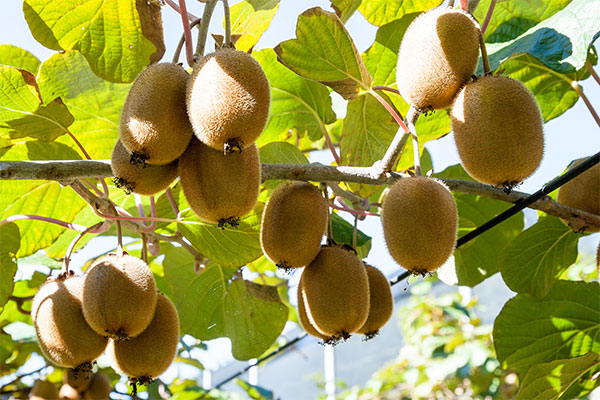
Kiwifruit contain a unique cysteine protease called actinidin. The name actinidin, is derived from Actinidia, the kiwifruit genus, and was first proposed by Arcus in 1959 (Arcus, 1959), who first described the enzyme after he observed that raw kiwifruit prevents the setting of jelly, due to its digestion of gelatin. Actinidin can also be referred to as Actinidia anionic protease, actinidain and Act d1. Its official enzyme number is E.C. 3.4.22.14.
Actinidin constitutes up to 40% of the soluble protein in the green Hayward kiwifruit cultivar (Boland, 2013). Actinidin has been found to have significant effects on the digestion of food proteins.
Since its discovery in 1959, actinidin has been the subject of a number of studies assessing its effect on the digestion of proteins both in vitro and in vivo (Boland, 2013) (Kaur & Boland, 2013) (Kaur, Rutherfurd, Moughan, Drummond, & Boland, 2010) (Montoya, et al., 2014) (Montoya, et al., 2013) (Rutherfurd, et al., 2011) (Montoya, Cabrera, Zou, Boland, & Moughan, 2018). Actinidin has a very broad specificity compared to pepsin and can hydrolyze a wide range of peptide bonds that are unavailable to pepsin. This action may then open up more sites for pepsin activity. The studies show there is clear evidence that both green kiwifruit, and the enzyme actinidin extracted from green kiwifruit, can provide enhanced upper-tract digestion (particularly in the stomach) of a variety of food proteins, which lends support to a role for dietary kiwifruit as a digestive aid.
In particular, the research has shown that actinidin can significantly enhance the digestion of dairy proteins such as casein (the major milk protein, found in yoghurt, cheese and cottage cheese), animal meat proteins (from beef, chicken and fish), wheat gluten, and, to a lesser extent, help to digest zein (corn protein), soy protein isolate, whey protein isolate (the minor protein fraction from milk), and collagen (connective tissue protein).
Research has also shown that the presence of actinidin can increase the rate of stomach emptying. This is important as the rate of protein digestion and emptying of the stomach influences the rate of disappearance of protein in the small intestine and the subsequent appearance of amino acids in the blood. The faster an amino acid can be absorbed into the bloodstream, the quicker it can be utilized. There is good evidence that the rapid appearance of some amino acids in the blood leads to increased synthesis of muscle tissue, which is useful for athletes wanting to build or repair muscle and for elderly people suffering from sarcopenia (muscle wasting), for example.
The increased rate of digestion and stomach emptying can assist reducing that feeling of overfullness after a high protein meal. This has been demonstrated in a clinical study where participants who ate green kiwifruit with a large steak reported gastric discomfort and bloating was significantly reduced compared to when they didn't eat the green kiwifruit (Wallace, et al., 2017).
Actinidin has traditionally been used for meat tenderizing in home cooking for many years, and a process for tenderizing meat at commercial scale has recently been described (Zhu, Kaur, Staincliffe & Boland, 2018).
Actazin®, a freeze-dried New Zealand green kiwifruit powder, which can assist with bowel regularity and issues with constipation, contains high levels of the powerful digestive enzyme, actinidin.






